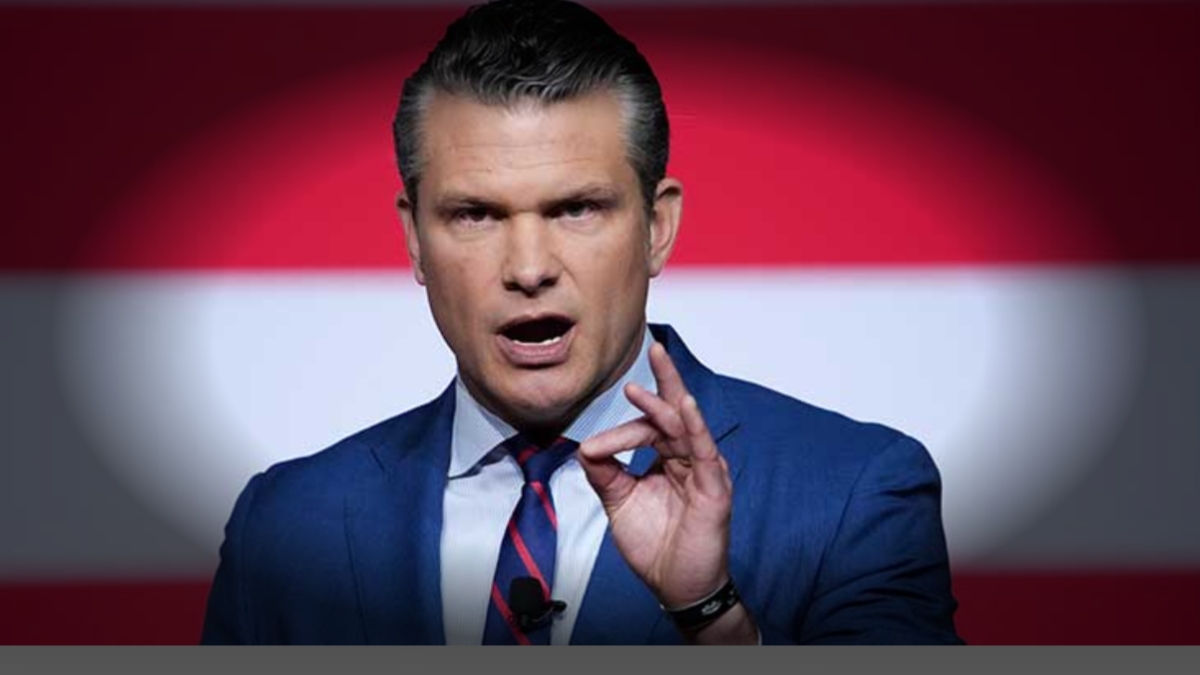WASHINGTON — US Defense Secretary Pete Hegseth said he has “every authorization needed” for recent military strikes in the Caribbean targeting vessels allegedly carrying illegal drugs off the coast of Venezuela.
The comments, made during a Fox News interview aired Sunday, came amid growing debate over the legality and scope of US operations in the region.
The Pentagon confirmed that a US strike on Friday killed four people aboard a vessel north of Venezuela, marking at least the fourth such attack in recent weeks.
The Biden administration has not provided evidence that the targeted boats were engaged in drug trafficking, fueling criticism from lawmakers and legal experts who question the justification for using military force in what they describe as a law enforcement matter.
Hegseth, speaking on Fox News’ “The Sunday Briefing,” said the operations were authorized under designations labeling certain drug cartels as foreign terrorist organizations.
We have every authorization needed, he said. “If you’re in our hemisphere, if you’re in the Caribbean, if you’re north of Venezuela and you want to traffic drugs to the United States, you are a legitimate target of the United States military.”
President Donald Trump previously told Congress he had determined that the United States is engaged in “a non international armed conflict” with drug cartels, a statement that expands the government’s authority to use military force against non state actors. However, the administration has yet to release a detailed legal rationale explaining the move.
In April, the Pentagon announced a buildup of naval assets in the Caribbean to combat what officials described as an uptick in narcotics trafficking from South America. The military presence includes surveillance aircraft, destroyers, and Coast Guard cutters operating jointly in international waters.
Trump, speaking to reporters Sunday, claimed the mission has already curtailed drug shipments. “There’s no drugs coming into the water. And we’ll look at what phase two is,” he said.
Legal scholars and national security analysts remain divided over the administration’s justification.
“This is a significant expansion of presidential war powers,” said Emily Carter, a professor of international law at Georgetown University.
Labeling drug cartels as foreign terrorist organizations may provide a veneer of legitimacy, but without congressional authorization or clear evidence, the legal basis for these strikes remains questionable.
Others say the decision reflects a broader trend of blurring the lines between military and law enforcement roles. “The US Coast Guard traditionally leads counter narcotics operations in maritime zones,” said retired Navy Admiral Paul Everett.
Using the military shifts the optics and the rules of engagement, which could increase the risk of civilian casualties and diplomatic fallout.
The Defense Department has maintained that all operations comply with international law and are designed to protect US interests. Officials argue that cartels operating in international waters pose a direct threat to national security by fueling organized crime and corruption.
According to the United Nations Office on Drugs and Crime, the Caribbean remains a major transit route for cocaine shipments from South America to North America and Europe.
In 2024, the UN estimated that more than 20 percent of cocaine trafficked from Colombia passed through Caribbean sea routes, despite intensified interdiction efforts.
The US Southern Command reported a 12 percent decline in maritime drug seizures during the first half of 2025 compared with the previous year, though analysts caution that traffickers have adapted by shifting to smaller vessels and more remote routes.
Comparatively, prior US operations such as “Operation Martillo” launched in 2012 were conducted primarily by the Coast Guard and allied nations, with limited direct military strikes. The current approach marks a notable escalation, relying on precision weapons and combat aircraft rather than interdiction and arrests.
In coastal communities near the Venezuelan maritime border, residents expressed both concern and support for the US operations.
“We hear explosions at night and see aircraft flying low,” said Miguel Hernández, a fisherman from Güiria, Venezuela. “People are afraid. Some of these boats are smugglers, yes, but others are just trying to survive.”
In Puerto Rico, which serves as a key hub for US naval operations, some locals back the increased presence. “The drug trade has been destroying our neighborhoods for decades,” said Maria Delgado, a community activist in San Juan. “If these missions really stop the flow, then maybe it’s worth it but we need transparency.”
Lawmakers in Washington have called for more oversight. Rep. Jason Whitmore, R-Texas, said Congress should “ensure that any use of force abroad is lawful, proportionate, and consistent with our constitutional obligations.”
Officials have not outlined what “phase two” of the Caribbean operation will entail, though Pentagon sources suggest it may involve expanded surveillance and joint missions with regional partners such as Colombia and the Dominican Republic.
Diplomatic observers warn the strikes could strain relations with Venezuela and other Caribbean nations wary of US military activities near their borders.
Without multilateral cooperation, this risks looking like unilateral intervention, said Sofia Menendez, a Latin American security analyst based in Bogotá.
Analysts expect ongoing legal challenges if the administration continues to invoke counterterrorism authorities for anti-narcotics missions.
The American Civil Liberties Union and several international law groups have requested public disclosure of the legal framework underpinning the strikes.
As the US intensifies its campaign against drug trafficking in the Caribbean, the debate over the balance between national security and legal accountability deepens.
While the Defense Department maintains it has “every authorization needed,” critics argue the lack of transparency and evidence leaves critical questions unanswered.
Whether the operations achieve long-term reductions in drug flows or set new precedents for the use of military force in non traditional conflicts remains uncertain.
For now, the Caribbean remains both a battleground and a barometer for the evolving US approach to global narcotics enforcement.
